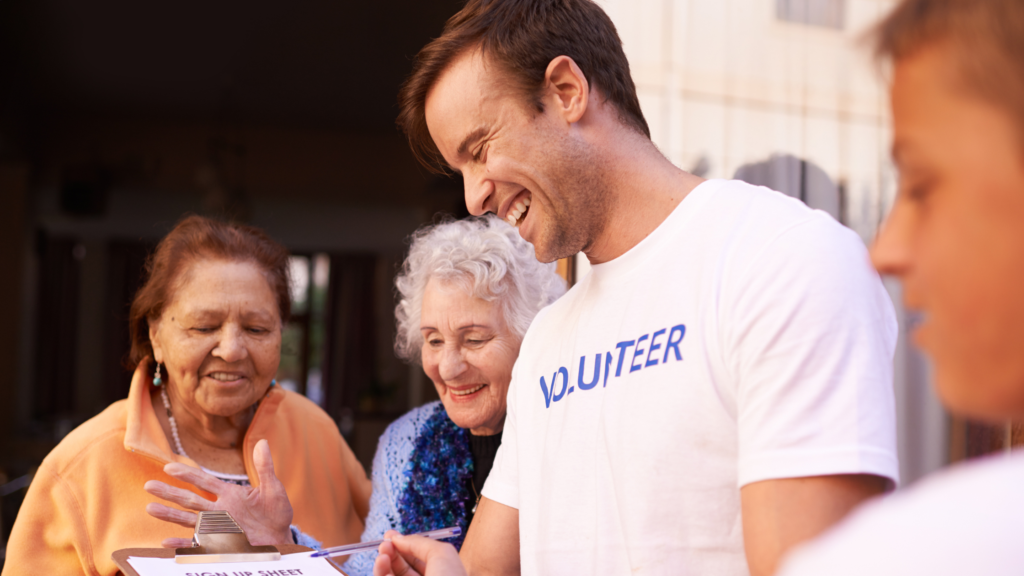The spirit of giving back, whether in relationships or the broader community, goes beyond mere acts of kindness. It fosters a sense of connection, purpose, and well-being that can profoundly impact one’s health. This blog explores how engaging in altruistic activities within your relationships and community can lead to improved mental, emotional, and physical health.

The Psychological Benefits of Giving Back
- Increased Happiness and Satisfaction
Numerous studies have shown that acts of giving lead to increased levels of happiness and life satisfaction. When we give to others, whether through volunteering, donating, or simply offering support, our brains release feel-good chemicals like dopamine and endorphins. This “helper’s high” boosts our mood and overall sense of well-being.
2. Reduced Stress and Anxiety
Giving back can significantly reduce stress and anxiety. Engaging in altruistic activities distracts us from our own problems, providing a sense of perspective and reducing the focus on personal stressors. Additionally, helping others can activate the parasympathetic nervous system, promoting relaxation and lowering stress levels.
3. Enhanced Self-Esteem and Confidence
Helping others can enhance self-esteem and confidence. When we see the positive impact of our actions, it reinforces our sense of purpose and value. This boost in self-worth can improve mental health and encourage more proactive behavior in other areas of life, including health and wellness.
Strengthening Relationships Through Giving
- Deeper Emotional Connections
Acts of giving within relationships, such as offering support, showing appreciation, and being there in times of need, deepen emotional bonds. These actions foster trust and intimacy, creating a stronger foundation for healthy and fulfilling relationships. Strong relationships, in turn, provide emotional support that is crucial for mental and physical health.
2. Improved Communication and Understanding
When we give our time and attention to others, it improves communication and understanding. Actively listening, empathizing, and being present for others enhance relational dynamics and reduce conflicts. This positive interaction lowers stress and creates a nurturing environment conducive to better health.
3. Mutual Support and Encouragement
Giving in relationships often leads to reciprocal behavior, where support and encouragement are mutually exchanged. This creates a cycle of positive reinforcement, making it easier to maintain healthy habits and cope with challenges. For example, couples or friends who support each other’s fitness goals or healthy eating habits are more likely to succeed in their health endeavors.
Community Engagement and Health Benefits
- Sense of Belonging and Purpose
Engaging in community activities and giving back fosters a sense of belonging and purpose. Being part of a community group, such as a volunteer organization, charity, or social club, provides a support network and a collective goal. This sense of belonging reduces feelings of isolation and loneliness, which are linked to various health issues, including depression and cardiovascular problems.
2. Physical Health Benefits
Community involvement often includes physical activities, such as participating in charity runs, cleaning up local parks, or organizing events. These activities promote physical health by encouraging movement and exercise. Regular physical activity is essential for maintaining a healthy weight, cardiovascular health, and overall fitness.
3. Cognitive Benefits
Volunteering and engaging in community service can also provide cognitive benefits. These activities often involve problem-solving, planning, and social interaction, which keep the brain active and engaged. Regular mental stimulation is crucial for maintaining cognitive function and reducing the risk of cognitive decline in later years.
4 Practical Ways to Give Back
- Volunteer Your Time
Volunteering your time is one of the most direct ways to give back. Whether it’s at a local food bank, animal shelter, or community center, offering your time and skills can make a significant difference. Look for opportunities that align with your interests and passions to make the experience enjoyable and fulfilling.
2. Support Local Causes
Supporting local causes, whether through donations or active participation, strengthens community ties. Consider contributing to local charities, participating in fundraising events, or advocating for community projects. Your involvement can drive positive change and foster a stronger sense of community.
3. Practice Kindness in Daily Interactions
Small acts of kindness in daily interactions can have a big impact. Compliment a coworker, help a neighbor, or simply lend a listening ear to a friend. These gestures not only brighten someone else’s day but also boost your own mood and well-being.
4. Create a Giving Circle
Consider creating or joining a giving circle, where a group of people pool their resources to support various causes. This collective approach amplifies the impact of individual contributions and creates a sense of community and shared purpose.
The spirit of giving back, whether in personal relationships or within the broader community, offers profound health benefits. From enhancing psychological well-being and reducing stress to fostering deeper relationships and promoting physical activity, altruism positively impacts various aspects of health. By embracing opportunities to give back and cultivating a giving mindset, we can improve our own health and well-being while making a meaningful difference in the lives of others.
Subscribe to the blog for the latest posts and information!
